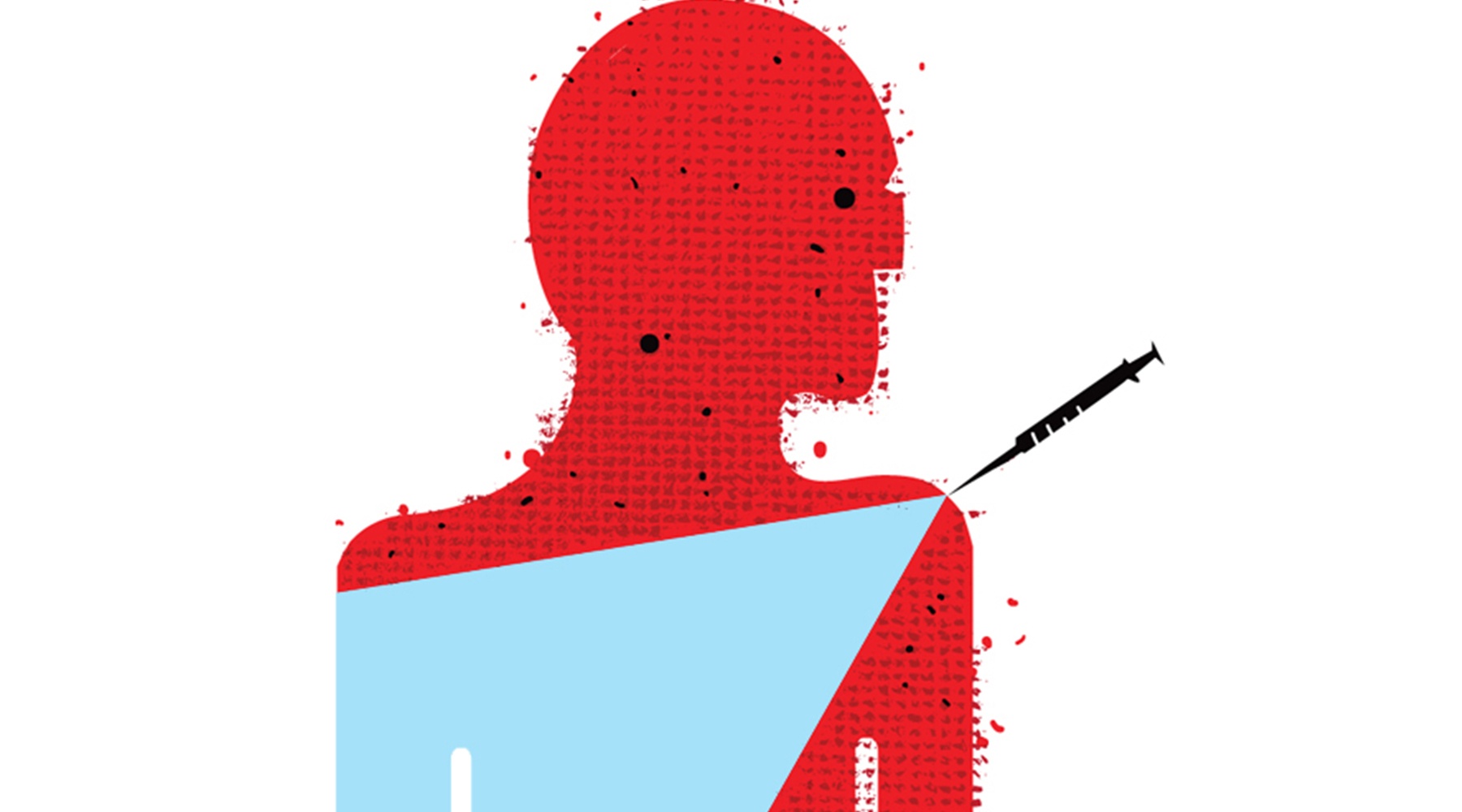Dear Dr. C,
I’ve noticed an increase in the number of stories on shingles lately. I’m glad to see it, because I’ve had shingles, and it’s a painful, miserable condition. My doctor had me take the vaccine, and now I tell everyone to take it so they can avoid what I’ve been through. But when is the best age for most people to get vaccinated?
Bill Ashford, Oklahoma City
His commercials may seem corny. But when former NFL quarterback Terry Bradshaw says, “Shingles is like being blindsided by some linebacker,” he’s right.
Shingles is a blistering skin rash that typically appears in one wide strip across the body, often on the torso. The condition causes intense pain and flu-like symptoms (fever, headache, chills, upset stomach), and it typically lasts for three to five weeks.
In addition, shingles can also bring on a common complication called post-herpetic neuralgia. PHN can cause excruciating nerve pain with a persistent stabbing, burning pain where the rash occurs. Advil, Tylenol and narcotic medications are ineffective in treating the condition, which can last for months or even years.
Shingles and its complications are caused by the chickenpox virus. If you’ve had chickenpox in your lifetime—which nearly every one of us has—the virus is already in your body, and it stays in your nervous system forever. When you’re young, your immune system tends to keep the virus in check. But as you age, your body’s defenses can break down, and that increases the likelihood of a bout of shingles.
While the shingles vaccine (known as Zostavax) is not perfect, it reduces the risk of getting shingles by 51 percent and PHN by 67 percent. If you do develop one of those conditions, you’ll experience less severe symptoms if you’ve been vaccinated. And even if you’ve already had shingles, getting vaccinated is still worth it, because the condition recurs in one in 20 people.
The vaccine itself is a live attenuated vaccine, meaning it’s made from a mutant version of the virus called varicella zoster. No serious side effects have been associated with the vaccine, but it’s not uncommon to experience mild swelling, soreness or itching at the site of the injection.
The Food and Drug Administration initially approved the vaccine for healthy individuals age 60 and older, which is the age at which the rate of shingles starts to increase significantly. But even among those 50 to 59, the risk of shingles is not insignificant—approximately five in 1,000 people in this age group develop the condition each year.
Subsequent research studies found that in those aged 50 to 59, the vaccine prevents approximately 70 percent of shingles cases. As a result, the FDA approved lowering the vaccination age to 50.
So if you’re 50 or older, ask your doctor about getting the shingles vaccine. It carries few risks, and it could well protect you from a painful, protracted illness.



